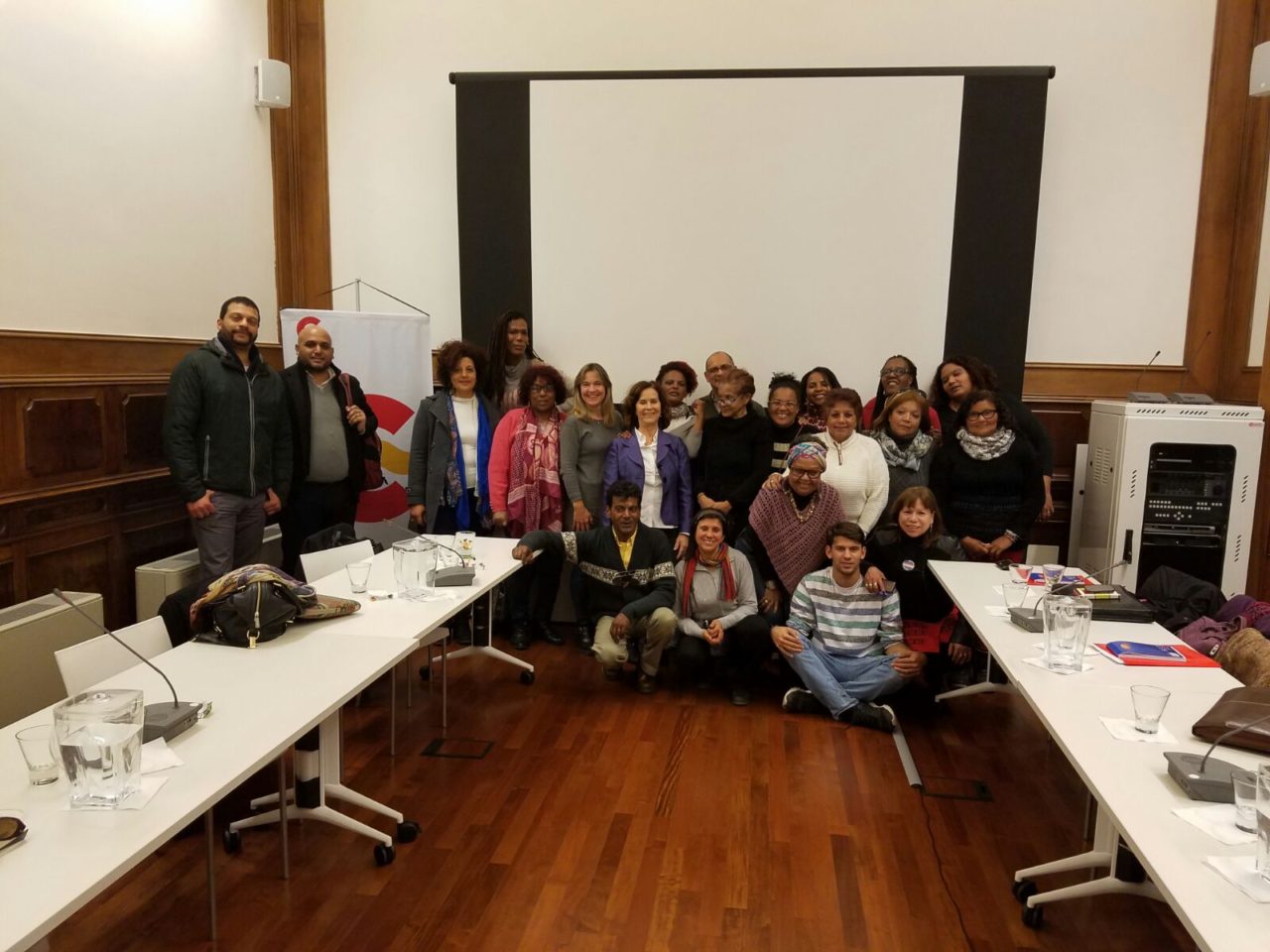Uruguay: The Institute Holds Advocacy Workshop on the UN Committee on the Elimination of Racial Discrimination (CERD)
Montevideo, Uruguay. At the request of the organizations Colectiva Mujeres Afro, Ovejas Negras and the Comité de América Latina y el Caribe para la Defensa de los Derechos de la Mujer, on August 22 the Institute on Race, Equality and Human Rights conducted an advocacy workshop United Nations Treaty Bodies: The Committee on the Elimination […]

Montevideo, Uruguay. At the request of the organizations Colectiva Mujeres Afro, Ovejas Negras and the Comité de América Latina y el Caribe para la Defensa de los Derechos de la Mujer, on August 22 the Institute on Race, Equality and Human Rights conducted an advocacy workshop United Nations Treaty Bodies: The Committee on the Elimination of Racial Discrimination (CERD). The objective of the workshop was to lay the groundwork for a civil society report to be presented in Geneva, Switzerland, as part of the Uruguay’s review by CERD.
The workshop was held at the Educational Center of the Spanish Agency for International Development Cooperation (AECID). Manuel de la Iglesia-Caruncho, Director of the Center, said that the workshop was very important in order to “monitor the progress and challenges” regarding the situation of racial discrimination in the country. Manuel also agreed to make the Center available for any follow-up meetings to be held after the workshop.
During the course of the workshop, Carlos Quesada, the Institute’s Executive Director, gave an overview of the UN human rights system, its special procedures and treaty bodies, including CERD, to participants from more than 20 Afro-descendant, women’s rights, sexual diversity and human rights organizations. In addition, participants were able to examine in-depth CERD’s recommendations to Uruguay following its last review in 2011, as well as the report submitted by the State for review in 2016.
Vicenta Camusso, of the Organización Colectiva Mujeres Afro welcomed the Institute’s technical assistance during the process and underscored the importance that civil society organizations establish their topics to be presented to the Committee. Indigenous representatives and members of the Afro-descendant LGBTI community expressed concerns about the current lack of information about their communities included in reports by both government and civil society, and expressed their appreciation for being invited to take part in the event.
Graciela Dede, Human Rights Adviser to the Office of the Resident Coordinator for the United Nations in Uruguay, expressed her support for continuing efforts after the conclusion of the successful workshop, and said that she would hold a follow-up meeting soon to ensure the full participation of civil society at the review session, having already been in communication with the CERD Secretariat about a video conference.
Among the results of the workshop are the establishment of a Follow-Up Committee, which will draft a civil society report on behalf of the coalition of organizations bringing together the different participating groups. Carlos Quesada, Director of the Institute, reaffirmed the Institute’s commitment to accompany representatives of Afro-Uruguayan civil society to present the report in Geneva.
The Institute works to support Afrodescendant and LGBTI civil society organizations in their advocacy efforts at the Inter-American human rights protection system and the UN human rights system.

